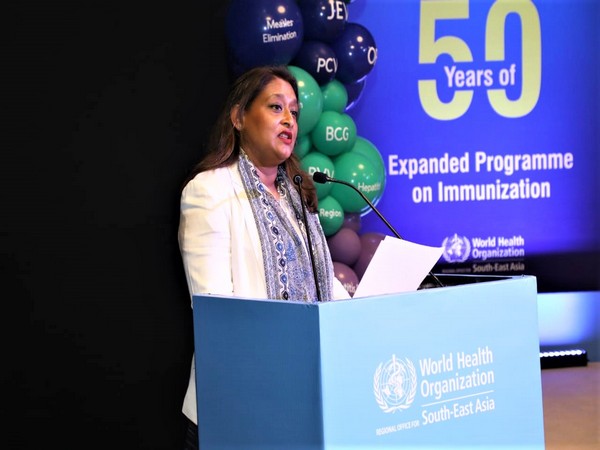The 77th Regional Committee Session of the World Health Organization (WHO) South-East Asia Region concluded in New Delhi, where member states adopted resolutions and established new targets for the elimination of measles and rubella.
In a statement, WHO SEARO highlighted plans to enhance the regional health emergency fund to support the elimination of these diseases, along with a commitment to developing adolescent-responsive health systems. Member countries have agreed to extend the target for eradicating measles and rubella from the region to 2026.
A “Strategic Plan for measles and rubella elimination and sustenance in the WHO South-East Asia Region 2024-2028” was also endorsed. Working against the earlier 2023 target, five countries of the region have achieved measles and rubella elimination.
“While regionally, we have made good progress on the elimination of measles and rubella, the COVID-19 pandemic did disrupt this progress. I am pleased the Regional Committee has resolved to revise the elimination target,” said Saima Wazed, Regional Director, at the closing of the Regional Committee meeting.
At the annual governing body meeting, member countries agreed to triple the South-East Asia Regional Health Emergency Fund (SEARHEF) to USD 3 million, starting in 2026. This fund aims to support lifesaving interventions during emergencies and strengthen health emergency preparedness and capacities across member states, as noted in a media statement.
The Regional Committee endorsed the Ministerial Declaration on adolescent-responsive health systems. This declaration calls for tailored policies, resources, and services to meet the unique needs of adolescents, fostering a healthier and more equitable future for all. It was noted that focusing on adolescent-responsive health systems is crucial for strengthening primary healthcare and achieving universal health coverage.
The committee also reviewed progress toward universal health coverage and health-related Sustainable Development Goals, with member states sharing initiatives and reiterating their commitment to accelerate efforts in reaching global targets.
During the three-day session, discussions included progress reports on previous resolutions concerning traditional medicine, strengthening health workforce education and training, and intensifying activities for dengue control and malaria elimination. Resolutions on the decade of action to end viral hepatitis, HIV, and STIs; universal access to people-centered healthcare and services; and plans for non-communicable diseases were also addressed.
In her closing remarks, Saima Wazed encouraged member states to actively engage in negotiations for the Pandemic Agreement and thanked them for their commitment to the WHO Investment Round. She reiterated WHO’s ongoing support to enhance public health across the region.
(ANI)




















